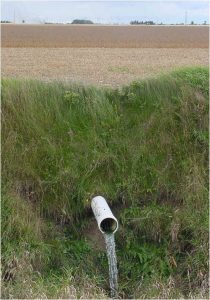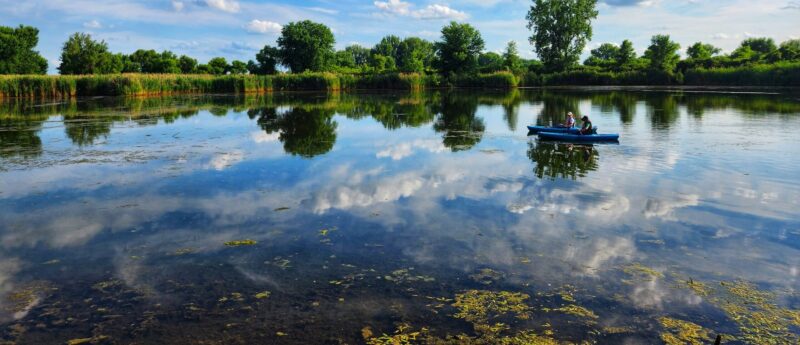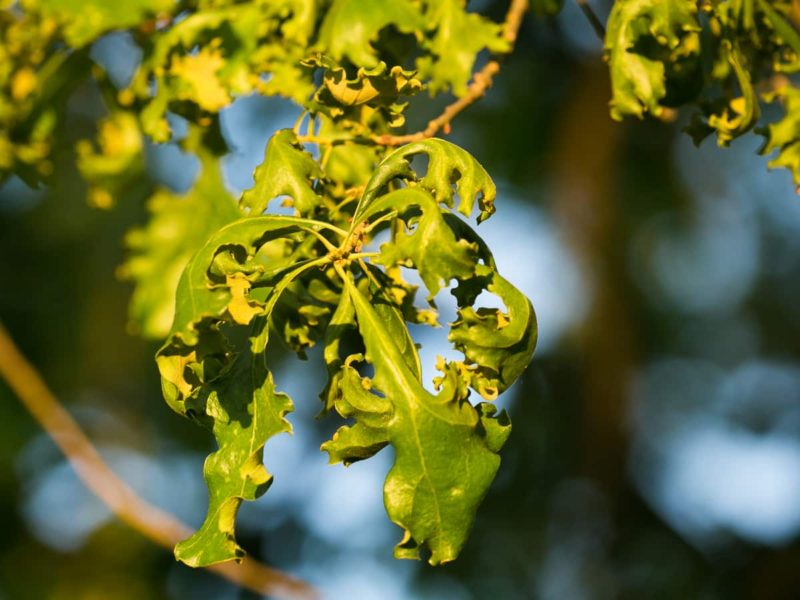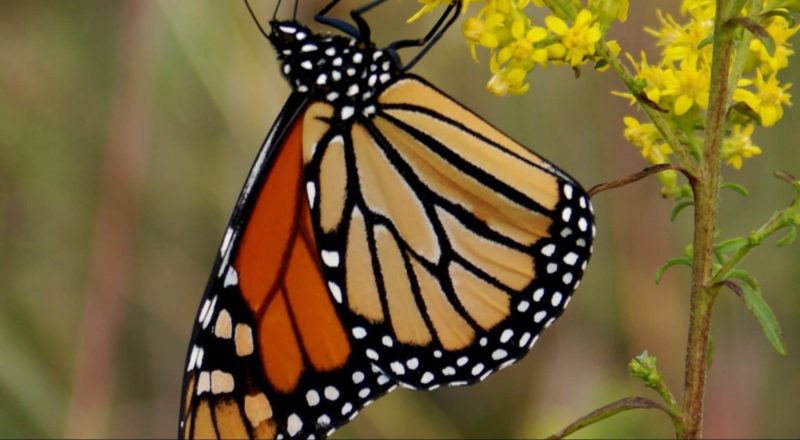Farmers are Partners in Protecting Water Quality

Illinois is one of the top national producers of corn, soybeans, and swine, with approximately 75% of the state’s land area dedicated to agriculture. The economic contributions of agriculture are undeniably important. However, the Illinois Environmental Protection Agency found that pollution from crop production impairs approximately 20% of the state’s streams. Such impairment denies Illinois citizens and wildlife the right to clean, safe water. The most common pollutants from agriculture are sediment, nitrogen, and phosphorus.
Problem: Nutrient Runoff
Conventional farming practices allow large amounts of nutrients, both applied and in the soil, to be washed off the field and into our waterways. Fertilizers applied to agricultural fields contain nitrogen and phosphorus. Nutrients are great for crop growth, but a large percent of what is applied eventually winds up in nearby waterways and becomes pollution.
Solution: Conservation Cropping Systems
Reducing nutrient pollution will require fixing a leaky system. It can’t be just one practice, but a system of practices that work together. And it’s not enough to just apply less fertilizer, but a combination of in-field and edge of field practices that slow the movement of water and soil and create an opportunity for them to be held or taken up by plants. Conservation practices that effectively keep soil and nutrients on the land include cover crops, riparian buffers, grassed waterways, drainage water management, wetlands, and spring only fertilizer application. Prairie Rivers Network has joined with other conservation groups, agriculture industry groups, government agencies, and researchers to develop Illinois Nutrient Loss Reduction Strategy. This strategy identifies targeted reductions in nitrogen and phosphorus in Illinois’ eight major rivers. Each state along the Mississippi River is striving to reduce the flow of nutrients to the Gulf of Mexico in order to reduce the size of the nutrient fueled dead zone and to protect Illinois’ waterways from polluted agricultural runoff. Prairie Rivers Network works to accelerate the implementation by farmers of agricultural best management practices. Key actions that we are working on include:
- Develop broad coalition of stakeholders to advance policies to reduce nutrient pollution
- Educate the public and local leaders about nutrient pollution as a drinking water and public health problem
- Leverage IL Nutrient Loss Reduction Strategy to spotlight industrial agriculture’s role in polluting streams and rivers, and to find solutions to reduce nutrient loadings in our waters
- Curb use of and strengthen regulations on dangerous herbicides and pesticides
- Develop and distribute myth busting information on agriculture in Illinois, targeting key NGO staff, journalists, and government officials; develop and implement a rapid response communications team to challenge the biased media narrative surrounding farming in America
- Promote a recognition that lax pollution standards unwisely subsidize destructive practices, undercut healthier farming practices, and impose high costs on public water suppliers and taxpayers
- Promote a nature-respecting view of responsible land ownership











